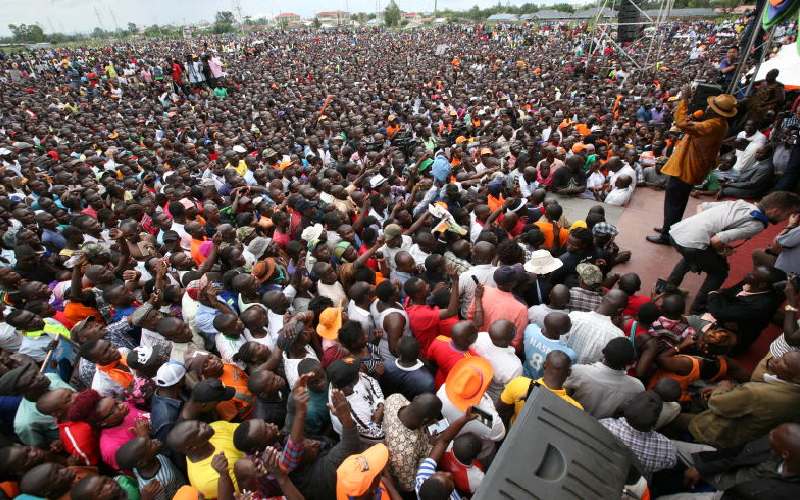×
The Standard e-Paper
Stay Informed, Even Offline

FILE PHOTO: ODM leader Raila Odinga addresses opposition supporters during a rally in Kisumu. [Denish Ochieng, Standard]
A leaked terse letter to President Uhuru Kenyatta by Senate Majority Whip Irungu Kang’ata warning of doomed prospects the Building Bridges Initiative (BBI) proposed constitutional changes in his Mt Kenya backyard, sparked fierce reactions with some claiming he is a Tangatanga sympathiser.